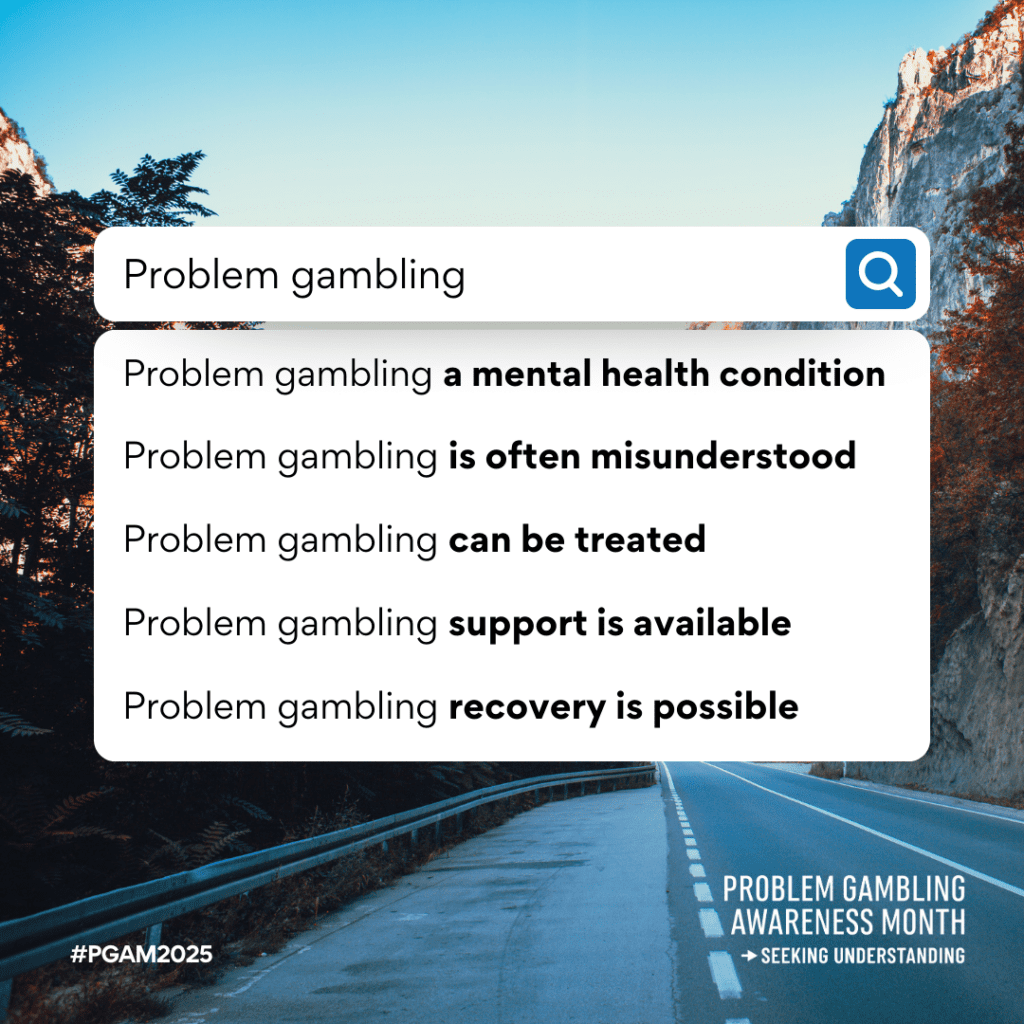March is Problem Gambling Awareness Month
In Oregon, it is estimated that 2.6 percent of adults experience moderate or serious problems with gambling (Oregon Health Authority). For each person with a gambling problem, many others may be affected (ex. spouse, children).

What is problem gambling?
Problem gambling is gambling behavior that is harmful to a person or their family, often disrupting their daily life and career. Anyone who gambles may be at-risk for developing a gambling problem.
What are warning signs of problem gambling?
Some warning signs of a gambling problem are:
- Thinking about gambling all the time.
- Feeling the need to bet more money and more often.
- Going back to try to win your money back (“chasing losses”).
- Feeling restless or irritable when trying to stop or cut down.
- Feeling like you can’t control yourself.
- Gambling despite negative consequences.
- In extreme cases, problem gambling can lead to bankruptcy, legal problems, losing your job or your family, and thinking about suicide.

Who is at risk for problem gambling?
Problem gambling can impact anyone who gambles regardless of economic, social, cultural, or levels of education. Certain factors can increase your risk of developing a gambling addiction — genetics, environment, medical history and age may play a role.
Can children and teens develop gambling problems?
Children and teens are at higher risk than adults for developing a gambling problem. Additionally, individuals who start gambling at a young age are also more likely to develop a gambling addiction later in life.
How can a person be addicted to something that isn’t a substance?
Although no substance is ingested, someone with a gambling problem may get a similar effect from gambling as one might get from taking a drug or drinking alcohol. Just as a person builds tolerance to drugs or alcohol, a person with unhealthy gambling habits finds that it takes more and more of the gambling to achieve the same emotional effect as before. This creates an increased urge for the activity and makes it harder to resist.
Source: National Council on Problem Gambling
Who can I call if I have concerns about my gambling or someone else’s?
In Oregon, gambling treatment services are provided at no cost to residents. Even if an individual with a gambling issue isn’t ready to seek help, their family and other supporters can access free counseling.
Linn County residents can contact the Linn-Benton Gambling Treatment Program at Linn County Alcohol and Drug Program (541-967-3819) for gambling treatment services in Linn County.
For all Oregon residents, the Oregon Problem Gambling Helpline (1-877-695-4648) connects individuals to resources and help for gambling-related issues. Trained professional staff are available 24 hours a day, 7 days a week to listen, answer questions, and refer people to free confidential counseling. To speak to someone in Spanish, call 1-844-888-2537.